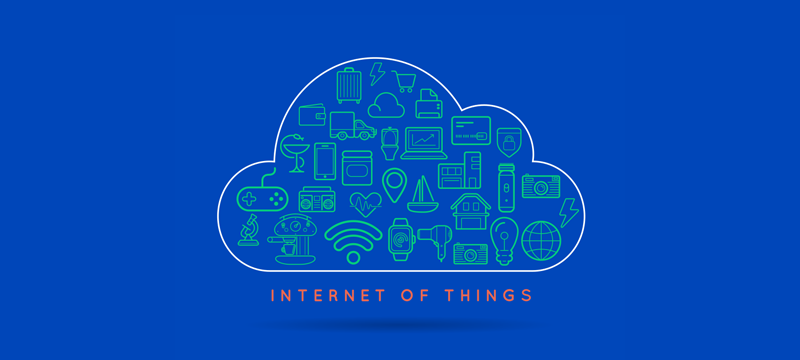IoT devices enable businesses to generate large volumes of valuable data. This real-time information gives them a better insight into their performance, helping them to be more productive and efficient and have a better understanding of their customers while opening the door to innovation in workflow and new services. Here we’ll look at seven ways businesses can benefit from the IoT.
- Asset tracking
The tagging of items using inexpensive Bluetooth or RFID tags and the use of internet-connected readers to track them means almost any asset can now be connected to the Internet of Things. This enables companies not only to know where all their assets are but also to check their usage, maintenance history and, in some industries, an asset’s health.
Preventing assets from getting misplaced can improve efficiency and cut down on unnecessary repurchases. In sectors like healthcare, where critical equipment can be located across a hospital, it can be life-saving. The ability to check usage and maintenance ensures compliance with regulation and helps companies understand when assets need upgrading. The monitoring of asset health is critical in many industries and can help prevent manufacturing processes coming to a complete standstill or, as in the case of inflight aircraft engine monitoring, prevent catastrophes. - Inventory Tracking
Tagged inventory can also be connected to the internet using the same Bluetooth or RFID technology, giving companies real-time stock level data. This can reduce the cost of manual stock taking while providing more accurate, up to date information. This provides much better inventory management and, as it is connected over the internet, can be used across multiple sites. It is ideal for retailers and for the manufacturers, wholesalers and logistics companies that serve them.
Indeed, using Low Power Wide Area Networks (LPWANs) and satellite tracking, the location of tagged inventory can even be tracked during transit. - Better communication with customers
The vast amount of data being collected using the IoT provides companies with the opportunity to give valuable information to their customers. In retail, for example, it enables them to offer omnichannel personalised marketing. Personalised marketing has proved very successful for online companies who use data from their websites to provide tailored offers to individuals. However, for businesses with both online and bricks and mortar stores, the IoT enables data from all forms of interaction to be collected. Supermarkets, for example, can learn about a customer’s in-store habits from their loyalty cards and send them online offers tailored around this.
Other types of IoT device can also help companies send valuable communications. Smart meters, for example, can help energy companies show customers where money is being wasted or where they can save from a different energy package. - The development of new services
Not only does IoT data help companies send valuable data to their customers, it can also create opportunities to offer them new services. The ability to monitor asset health, as mentioned above, means businesses can also track the health of the products they sell and offer their customers add-on maintenance services.
We get our boilers serviced annually as a precaution but wouldn’t it be useful if the service company knew in advance that a part was about to fail and contacted us to replace it before it packed in? The same service could be applied to cars, televisions, computers, vacuum cleaners and many other items we use.
It is not just with breakdowns where additional services could be offered. Manufacturers of products which use consumable parts could monitor when those parts were due for replacement and offer a service to send them before they ran out. This would be ideal for replacing ink cartridges, lightbulbs and batteries, etc. - Improved security
Today’s IoT-enabled CCTV cameras bring many security advantages. Any business owner can now view multiple premises, internally and externally, from anywhere. And the advancement in CCTV technology means these systems use AI to identify suspicious activity, send out warning notifications and use facial and other visual recognition signals to track and record perpetrators. - Visual analytics
The same IoT technology is also helping businesses to gain greater insight into customer and employee behaviour. Connected cameras using artificial intelligence can gather valuable data which enables retailers to better understand how their customers interact with their store layouts, promotional materials and product displays. With employees, it is possible to learn how individuals interact with machinery, use their time and undertake processes. This can help improve workflows and lead to greater efficiencies on the shop floor. - Efficiencies and improvements
IoT data can help businesses make major efficiencies and develop improvements. It helps manufacturers speed up workflow and cut bottlenecks. It enables logistics companies to reduce energy costs, reroute vehicles when there are traffic jams or organise deliveries for the quickest routes. It even helps theme parks know which attractions are most popular and when: ensuring adequate numbers of staff are available and that unpopular attractions are replaced.
Conclusion
The data gathered from IoT devices is enabling companies to make important changes to the way they operate. It can improve asset and inventory management, enable better communication with customers and offer the potential for new services. It can also improve security, offer insights into customer and employer behaviour and help introduce efficiencies and improvements.
If you are considering harvesting the power of the IoT, you will need an IT system that has the storage capacity to hold large amounts of data and the scalable processing capacity to analyse it. If this is something you require, check out our enterprise cloud hosting solutions.


